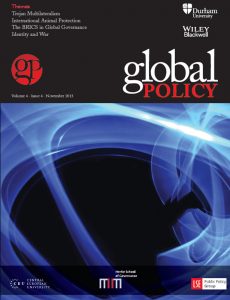The Graduate Student Tribe

Photo by: Anne-Lise Heinrichs
Found on: Flickr Creative Commons
http://creativecommons.org/licenses/by/4.0/legalcode
Mothers seem to be good at finding tribes. They blog, form Facebook pages, meet for regular play dates, etc…If the plight of early woman were anything like this nostalgic blog post, I would surely miss a communal motherhood as I would miss an appendage. I suspect however, that even with shared laughter the washing, cooking, and caretaking required of early mothers left them just as exhausted as we feel today. According to Wikipedia (insert snickering), archeologists think that tribal structures were an adaptation to situations providing plentiful yet unpredictable resources. Historically tribes were a face-to-face community bound by kinship, reciprocal exchange and strong ties to place (Paul, 2006).
Regardless of the time period in which one lives, commiserating with others who share your experiences is rewarding. This includes those who share your research interests. Mothers are so good at constructing a tribe they offer specific advice on how to find your unique tribe or how to create one of your own. Graduate students share all of the conditions of tribal structures as well. We have fairly comfortable resources (while in graduate school – on a stipend – under the care of our professors) but we also know this honeymoon will not last. Somewhere between our fourth and tenth year we will be forced out into the world of unpredictability. If you have been reading any of the ominous Chronicle of Higher Education articles, you can be sure our uncertain future is quickly approaching.
So what’s a graduate student to do? In addition to usual advice to build your C.V., present at conferences, and nurture deep lasting relationships with your professors I recommend that we take a piece of mommy blogger advice and build a tribe. Graduate student tribal construction seems easy – you have a ready-made tribe with your cohort, right? Not always. The folks with whom you enter graduate school may not always share your interests and are honestly fumbling along in the same way you are. It’s time to looks elsewhere.
Nathaniel Lambert writes about untapped graduate student assets in his book Publish and Prosper: A Strategy Guide for Students and Researchers says “People are your most valuable resource for being a productive scholar”. So of course, develop an excellent working relationship with your adviser and prioritize the research you are working on with him/her even over class assignments. As wonderful as our advisers are, they must act more as employers at this stage. Soon they can be tribal members but right now they are more like tribal elders.
Seek out other tribal members beginning with advanced doctoral students or post-docs. In my experience these have been my guides to the job market, motherhood while in graduate school, publication resources, and overall sanity. These are the folks who can provide perspective to your overly harried and overwhelmed graduate student life. They remember – probably with nightmarish clarity – how it felt to have 60 outstanding applications and no interviews scheduled…yet. They too submitted papers over and over again to successively less prestigious journals hoping for a good fit. They also may remember what it feels like to teach a large course across campus while 8.5 months pregnant or going on the job market tethered to toddlers. These are your tribal leaders. Lambert recommends looking to recently graduated students who share your research interests and have a track record for productivity that you admire.
Once you have some reasonably strong personal resources from others who have already walked your path and are willing to commiserate with you along the journey it’s time to engineer solid working relationships with people closer to your timeline. Paul Silva, in his book How to Write A Lot (2007) recommends forming a writing and research group that meets weekly. Boice (1989) finds that those scholars who developed personal accountability systems are 9 times more productive than those who write during large chunks of time or who simply keep a record of their writing. It won’t matter the individual interests of each member of the group. You will all have productivity and long term success as your common goal. The focus of the group is on research only – course goals, teaching goals, or blogging goals are for another time.
Silva recommends that the group begin by writing down their long term goals – think five years out! Then list smaller goals along the way – yearly or semester goals. The group then challenges each other to actually quantify those goals so you can determine whether or not a goal has been reached. After that everyone will make weekly goals with the larger goals in mind. They key, according to Silva is that each goal is quantifiable. For example, my goal to reach before my Friday writing group is to write 15 pages for the theory section on the second half of my dissertation. Someone during the meeting each week tracks the goals and notes whether each goal has been achieved. I think applause is in order for those who reach their weekly goals.
The purpose of a writing and research group is twofold. First, it holds each member accountable each week and second it acts as a support group as you work to achieve your goals. These are your tribal members. These are the people who will problem solve with you, cheer you on, help you set reasonable expectations, and hopefully become accountability partners throughout your career. One final possibility, working in groups toward a collected goal has also been shown to have a positive effect (Kleingeld et al. 2011). How many manuscripts can your writing group collectively submit to a journal say, by the end of the semester? Five? Six? Celebrate reaching your group goals together with a writing group dinner or a pile of donuts or a shared experience like a concert or comedy show. In the field of academia we seem to think that suffering alone with our strained sentences in our windowless offices is a rite of passage. It doesn’t have to be that way. Go ahead. Form your tribe.
Boice, R. (1989) Procrastination, busyness and bingeing. Behavior research and therapy, 27(6), 605-611
Kleingeld A, van Mierlo H & Arends L (2011) The effect of goal setting on group performance: a meta-analysis. Journal of applied psychology, Vol 96(6), 1289-1304
Lamber, Nathaniel M. (2014) Publish and Prosper: A Strategy Guide for Students and Researchers. New York: Taylor & Francis Publishers.
Paul, James. (2006) Globalism, Nationalism, Tribalism: Bringing Theory Back In. London: Sage Publications.
Silva, Paul J (2007). How to Write A Lot: A Practical Guide to Productive Academic Writing. Washington DC: American Psychological Associate Publishers.





1520-6688/asset/Capture.jpg?v=1&s=b5076c49a7d1c5f1b9cf0dd9cd292394a3be81cc)
1468-0491/asset/society_affiliation_image.gif?v=1&s=859caf337f44d9bf73120debe8a7ad67751a0209)